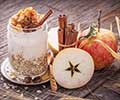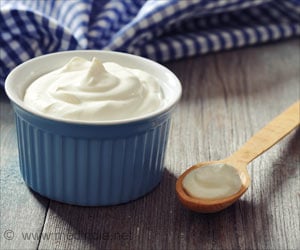Learn the best time to eat curd, foods to pair with it, and what to avoid for optimal digestion and health benefits.
- The best time to consume curd is during the day, preferably after lunch
- Avoid eating curd on an empty stomach or before bedtime
- Pair curd with fruits, vegetables, and grains for maximum benefits
Viruddha Ahara: A critical view
Go to source).
Eating curd at night can disrupt your sleep and cause indigestion. #medindia #healthtips #curd’
When to Eat Curd
Most people tend to eat curd during the day, but some enjoy it at night. This has led to some confusion about the best time to consume curd.Dr. Rupali Datta, a clinical nutritionist from Delhi suggests that the best time to eat curd is in the afternoon, after lunch. She explains that curd helps with digestion and provides an energy boost. The probiotics in curd support a healthy gut, which aids in digestion. However, she advises against eating curd at night because it can cause digestive problems and interfere with sleep. Eating a heavy meal close to bedtime can lead to indigestion, discomfort, and poor sleep quality. Dr. Pratima Mishra, a nutritionist from Ahmedabad agrees with Dr. Datta. She also recommends eating curd during the day, as it is easier to digest. Curd can be a great addition to a meal or a healthy mid-day snack.
When Not to Eat Curd
Dr. Mishra points out that eating curd on an empty stomach or before bed can cause issues. On an empty stomach, curd can lead to acidity and bloating. Before bedtime, it can cause indigestion and discomfort, disrupting sleep. However, she also notes that individual needs vary, so it’s important to consult a healthcare provider or nutritionist to determine the best time to eat curd for your specific health goals.Foods to Eat with Curd
Curd pairs well with a variety of foods and can enhance their nutritional value. Some great combinations include:- Fruits: Mix curd with fresh fruits like bananas, or berries for a nutritious and delicious snack or breakfast option.
- Vegetables: Combine curd with vegetables like cucumbers, carrots, and tomatoes to make raita, a refreshing side dish.
- Grains: Add curd to your grains, such as rice or quinoa, for a creamy and satisfying meal.
- Honey and Nuts: For a sweet treat, mix curd with a bit of honey and a handful of nuts like almonds or walnuts.
Foods to Avoid with Curd
While curd is versatile, there are some foods you should avoid combining with it:in Ayurveda.- Fish: Combining fish and curd can lead to digestive issues and is considered incompatible
- Mango: Though both curd and mango are healthy, together they can cause heat in the body and are best consumed separately.
- Oily or Fried Foods: Eating curd with oily or fried foods can be heavy on the stomach and may cause indigestion.
Reference:
- Viruddha Ahara: A critical view - (https://www.ncbi.nlm.nih.gov/pmc/articles/PMC3665091/)
Source-Medindia











